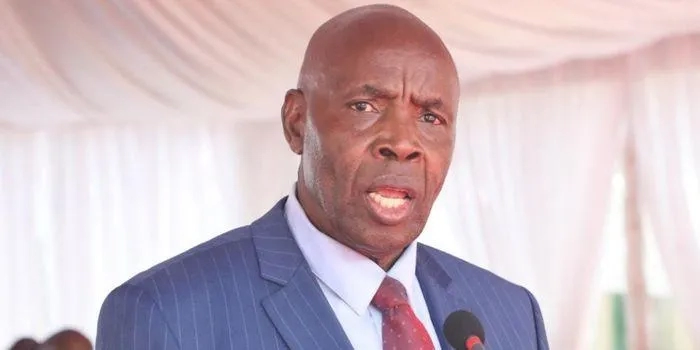Ezekiel Machogu, the cabinet secretary for education, prohibited teachers from teaching all students on Monday, January 30, in the early morning or late evening.
The CS complained that teachers were giving their students too much work and not giving them enough time to rest.
Machogu advised schools against requiring pupils to arrive at the school before dawn or to leave after dusk.
“With the start of the school year, the government will be watchful of pupils’ reporting times.
The CS said, “Classes should start at 8.00 am and stop exactly at 3.45 pm,” noting that some children get up at 4 am to be ready for school.
“Students who need to make it to remedial classes will be seen strolling in the streets before daybreak.
The CS issued a warning, saying, “We will not permit that and we will also take action on schools that ferry children home as late as 10:00 pm.”
Kenya Primary Heads Association (KEPSHA) responded by requesting that the Ministry of Education hire additional teachers in order for the instruction to be successful.
In public elementary schools, there is a severe teacher shortage, which makes it challenging to complete the curriculum in the allotted time.
KEPSHA stated, “We ask the Ministry to train and hire more teachers so that it will be possible to follow the announced school calendar.”
KEPSHA reports that the teacher-student ratio in public schools is at 1:50.
KEPSHA also expressed gratitude to the Ministry of Education for fixing some of the issues.
We have seen that the government has made available textbooks for use in the classroom, and if additional teachers are hired, we will be able to complete our lessons on time “The organization said
The education industry under CS Machogu underwent a number of reforms, some of which included banning early preps and nighttime sessions.
Machogu cautioned principals not to expel Junior Secondary School students for unpaid fees in January 2023.
“Schools must choose a uniform for themselves that incorporates other distinctive elements for their institution’s branding and recognition.
The policies stated, in part, that “Uniform shall be the responsibility of parents and no school shall direct parents as to where to purchase the uniform or disqualify kids for inability to pay a school uniform.”
He continued by saying that in addition to being summative and formative, JSS exams would also be administered as School Based Assessments (SBA), which are international tests overseen by the Kenya National Examinations Council (KNEC).




